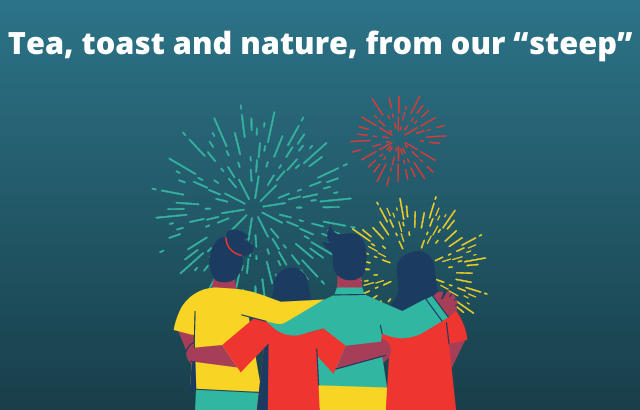How to be separated and let go of love
While it is painful to see our loved ones become self-destructive, isolation allows us to enjoy our lives despite the other person's problems and behavior. Attachment and care are normal. It’s healthy to be associated with those we love and care for, but self-reliant attachment causes pain and problems in our relationships. We have become overly attached because it is not because we love it so much but because we need it so much.
We need someone and work in a certain way so that you can feel right. Managing and controlling, reacting, and worrying and obsessing are reverse code-based patterns. We may be extra involved. The antidote is released.
What is separating?
Isolation refers to neutrality. Isolation is a way to separate the unhealthy sensitive glue that keeps us stuck in a self-contained relationship.
What is not separated?
This does not mean physical withdrawal. Nor does it isolate sensitive withdrawal, such as hiding, being frustrated, emotionally shut down, or ignoring someone.
Separation does not mean neglecting family responsibilities or leaving someone behind. Although physical space or isolation can be effective as a means of setting boundaries and centering oneself, isolation does not mean it. For example, some people decide not to communicate with anyone because the relationship is very painful.
Physical proximity is irrelevant. In fact, some divorced couples are more sensitively connected and responsive to each other than most married couples. Someone living far away might push our buttons on the phone so we can stay in the conversation for a few days - or even without one! It’s about re-focusing on isolation and taking responsibility for yourself.
Read the related topic: Relationships: Is it normal to stop if someone doesn't respond?
The key element of separation
It involves letting our expectations and other person’s problems and issues get involved. We stop responding to what they say and do and express obsession and concern about things. We control our feelings and thoughts and think of our own business. It does not remove our feelings and worries but it does channel them in a healthy way. In practice, it is more compassionate and loving than a self-contained attachment.
There are four main concepts involved in segregation:
- Having suitable boundaries
- I accept the reality
- Not in the past or in the future, but in the present
- Taking responsibility for our feelings and needs
Isolation lets go with love
When learning isolation first, people often shut down their feelings or use walls of silence to refrain from dependent behavior, but with perseverance, understanding, and affection they let go with love. Instead of gradually investing in changing or controlling others, we can be empathetic and encourage them. We don’t need to argue or persuade others, but instead, be interested in different perspectives. It shows the limits and isolation of respect and dignity. Instead of manipulating people like us, we risk being authentic. For example, we might say, "I feel bad when I see you depressed." Instead of trying to change someone’s need for space or silence, we enjoy ourselves alone or with someone else. This may seem impossible but this salary is rewarding.
Are you extra involved?
When we worry it is a sign that we are associated with a certain outcome. When we get frustrated with someone it is because we are attached to them that they are different from who and acknowledge their flaws. When we give unsolicited advice, we are crossing a boundary and taking a higher position. We all do it sometimes but coders do it too much. Boundaries become blurred instead of two with separate minds and distinct feelings. Does this apply to you?
- Do your mood and happiness depend on someone else?
- Do you have a strong emotional response to someone's opinions, thoughts, feelings and judgment?
- Do you spend time thinking and thinking about someone else's problems?
- Do you analyze someone’s motives or feelings?
- What do you think about what someone else is doing, not doing, not thinking or feeling?
- Do you neglect your career, hobbies, activities, or friends because of relationships?
- If someone else doesn't join you or refuses, do you skip other activities?
- Do you make someone happy because you are afraid of rejection?
- Are you desperate to work alone?
We are myopic when we are extra involved. Others become our extensions. We try to control their opinions, feelings, and actions in order to get what we need and think it's okay. We try to manage them to avoid witnessing their suffering. We try to impress and make them happy. We try to persuade them to agree with us or do what we want. Then, when they don't want to, we respond with hurt or anger. If you are related, learn why isolation is helpful.
The advantage of isolation
Letting go of it not only in relationships but also in personal growth, inner peace and in all areas of our lives brings us deep benefits.
- We learn to love
- We achieve peace, freedom and strength
- We gain time for ourselves
- We become more stable towards losses
- We learn freedom and self-responsibility
- We encourage that among others
We are responsible for our thoughts, feelings, actions and the consequences of these actions. Other people are responsible for them. It is not uncommon to occasionally encourage someone or pay too much attention to him or her. One advantage of a good marriage is that wives nurture each other when they have difficulty but it is supportive, not self-reliant caring, and it is interrelated.
Conversely, when we constantly try to change the mood of others or solve their problems, we become their guardians based on the misconception that we can control what causes their pain. We take on responsibilities that are ours, not theirs. Sometimes self-reliant couples unconsciously agree that one wife has an obligation to please the other. It is an impossible task and leads to mutual dissatisfaction, anger and resentment. Cheerleaders always fail and feel frustrated and the recipient feels ashamed and annoyed. Everything we try will not be accurate or sufficient enough.
Read about the related topic: Tips for maintaining a long-distance relationship with grandparents
How to differentiate
Separation begins with understanding, but it takes time for the heart to truly realize that we are ultimately not powerful to others and that our efforts to change someone are ineffective and possibly harmful to us, the other person, and the relationship. Take these steps to practice isolation:
- Ask yourself in reality if you are denying in reality.
- Check if the other person's expectations are reasonable.
- Honestly test your inspirations. Are they self-serving?
- Practice allowing and accepting reality in all areas of your life.
- Allow your feelings.
- Practice meditation to be less connected and responsive.
- Practice empathy for the other person.
- Be authentic. Make an "I" statement about your real feelings instead of giving advice.
- Attend al-Anan or Coda meetings.
If you answered "yes" to some of the above questions, consider learning more about separation and getting support. Isolation can be very difficult to do on your own.







0 Comments
If you have any doubts, Please let me know.
Emoji